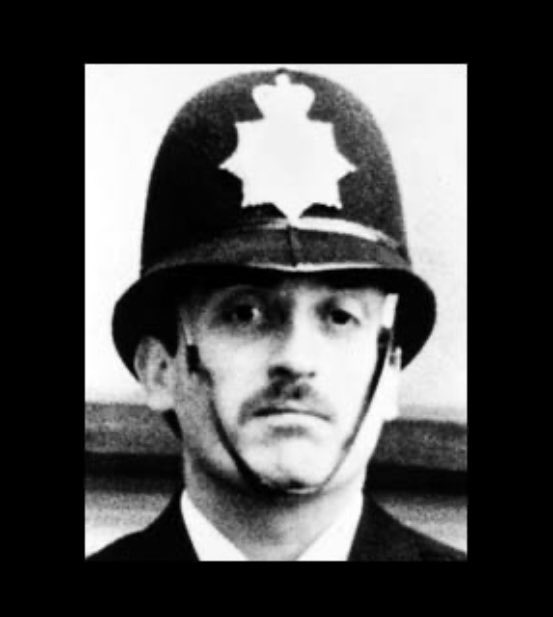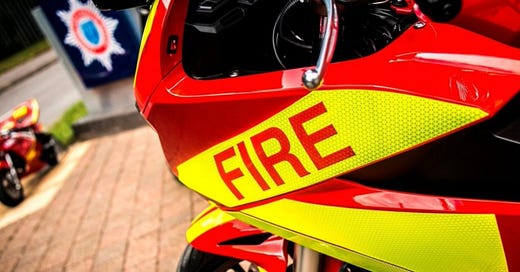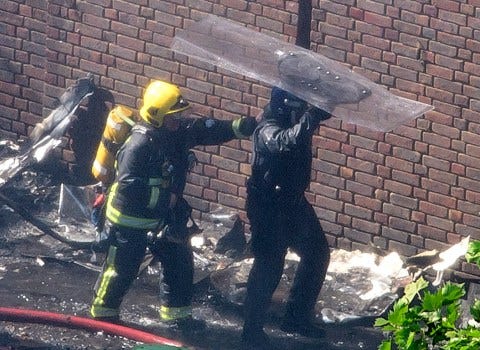FBU Under Fire: Is the Fire Brigades Union Playing Politics?
A controversial statement by the Fire Brigades Union sparks a heated debate about neutrality, politics, and the role of emergency services. Is this a dangerous precedent or a justified stance?
A recent post on X by the Fire Brigades Union (FBU) has ignited a heated debate about the role of firefighters and their intersection with the police. In their post, the FBU referenced an incident at Oxford’s Radcliffe Camera, where firefighters reportedly attended an automatic fire alarm.
This incident occurred during a demonstration organised by Oxford Action for Palestine (OA4P), in which protesters staged a sit-in by scaling the historic building. Alongside their report, the FBU emphasised their stance against assisting the police in law enforcement activities, including removing protesters.
The accompanying image underscored this sentiment, stating that “firefighting is a humanitarian profession” and “does not include assisting the police response to protests or the removal of protestors.”
This stance is not without precedent. The FBU has long championed its independence from the police, framing firefighting as a neutral, humanitarian service. However, the implications of this post have sparked strong reactions from both supporters and critics, bringing broader questions about political stances within emergency services to the forefront.
The Context: Firefighters at the Radcliffe Camera
The incident in question involved a demonstration at the Radcliffe Camera, reportedly organised by the activist group Oxford Action for Palestine (OA4P). Protesters scaled the building and staged a sit-in.
According to contemporaneous reporting from Cherwell, police utilised specialised climbing equipment and abseiling techniques to manage the protest. At no point did the article mention firefighters being approached by the police to assist in removing protesters, a claim central to the FBU’s justification for their statement.
Indeed, a closer examination of local reporting and commentary reveals no evidence to suggest that police have requested such assistance from firefighters in this or similar incidents. This aligns with the experience of some former police officers, including a contributor to this blog, who served nearly a decade on a 999 response team in East London.
They confirm that it would be highly unusual for police to ask firefighters, or any other emergency service, to help remove protesters. Such tasks are typically managed by trained police specialists.
Public Responses to the FBU’s Statement
The FBU’s post was met with a flurry of responses on social media, many of which criticised the union for what some perceived as political posturing. One particularly pointed response drew attention to the murder of PC Keith Blakelock during the 1985 Broadwater Farm riots, highlighting that firefighters often rely on police protection in dangerous situations.
The comment read:
"PC Blakelock had been assigned, on the night of his death, to Serial 502, a unit of 11 constables and one sergeant, dispatched to protect firefighters who were themselves under attack. You have short memories when it suits you."

Another post contrasted the FBU’s stance with the collaborative nature of emergency services, sharing an image of police officers shielding firefighters from falling debris during the Grenfell Tower fire. The caption read:
"Good thing the police are happy to help you carry out firefighting activities though."
These responses underscore the reciprocal relationship between emergency services, where cooperation often saves lives and ensures safety in high-risk scenarios. Some critics argue that the FBU’s statement undermines this cooperation by drawing a rigid line between their humanitarian role and law enforcement.
The Risk of Political Alignment in Emergency Services
Got a story or video to share? Need to get something off your chest?
Our team of experienced former emergency services and armed forces personnel wants to hear from you! With 300,000 monthly views, your story could reach a wide audience. Email us at contact@emergency-services.news.
Perhaps the most controversial aspect of the FBU’s statement is its alignment with political views. The union’s reference to supporting “peace and justice for Palestine” has drawn sharp criticism, with some accusing the FBU of taking sides in a highly contentious geopolitical issue. One commenter articulated this concern:
"This is blatantly political. The Fire Brigade is one of the cornerstones of the emergency services. This statement has just aligned the Brigade with a side. What's next, refusing to attend shouts at locations associated with causes you don't support? Revoke the statement now."
Others echoed similar sentiments, warning of the potential erosion of trust in the fire service. One particularly stark comment challenged the union on ethical grounds:
"Presumably you will not be attending synagogue fires? Or house fires in Golders Green, Edgware, Hendon, Stamford Hill etc? And if a person is trapped inside a crashed car, and seen to be wearing a Kippah, you’ll leave them in there?"
This sentiment reflects a deeper fear—that the perception of bias within emergency services could have real-world consequences for public trust and safety. While the FBU may intend its stance to reflect broader humanitarian values, critics argue that it risks alienating communities and creating divisions.
Collaboration vs. Independence
Another dimension of this debate is the practical collaboration between firefighters and police. One commenter pointed out that firefighters often assist in law enforcement investigations, particularly in cases of arson, providing professional evidence to support prosecutions. Their comment succinctly dismissed the idea of firefighters as wholly independent from law enforcement:
"Sorry, but this is a load of nonsense. Fire Brigade also help police investigate suspicious fires and provide professional evidence for prosecution of arsonists. 'Purely humanitarian' my arse."
This critique sheds light on the intricate relationship between emergency services. Firefighters might not enforce laws directly, but their work often intersects with law enforcement to enhance public safety.
A History of Controversy
This is not the first time the FBU has faced criticism for its political stances. In a previous controversy, the union was forced to delete a tweet condemning Metropolitan Police officers following clashes at a vigil. Subsequent reporting revealed that police officers had been assaulted during the event and that a group had hijacked the vigil to provoke a confrontation.
In response to the post shared on X about the vigil, dozens of firefighters publicly voiced their support for the police, distancing themselves from the FBU’s statement. Many affirmed that the union’s stance did not reflect their views, highlighting a disconnect between the union’s political motivations and the sentiments of its members. This discord suggests that the FBU’s public statements risk driving a wedge between the fire service and the police, undermining the collaborative spirit essential to emergency services.
Enjoying this post from ESN Report? It's public, so don’t keep it to yourself—share it with friends, colleagues, or anyone who supports our emergency services, the NHS, or armed forces!
The Broader Implications
The FBU’s recent statement raises important questions about the role of unions in emergency services. Should they take political stances, or should they remain strictly focused on advocating for their members’ safety and working conditions? While unions have a right to voice their views, the perception of bias in a field that relies on public trust can have far-reaching consequences.
This debate also underscores the delicate balance that emergency services must maintain. Firefighters, police, and paramedics/EMTs are all united by their shared mission to protect the public, often working together in dangerous and unpredictable situations. Statements that draw lines between these services risk undermining that unity, to the detriment of everyone they serve.
The Fire Brigades Union’s statement has sparked an important conversation about the role of neutrality and collaboration in emergency services. While the union’s emphasis on humanitarianism is laudable, its broader political implications have provoked valid concerns. As the public and emergency services personnel continue to debate these issues, one thing remains clear: trust and cooperation are the cornerstones of effective emergency response.
If you value in-depth discussions about the challenges facing emergency services, consider subscribing to our blog. Together, we can foster a deeper understanding of the people who protect us every day.
OPINION: Is the Fire Brigades Union Playing with Fire? The Dangerous Rise of Politics in Emergency Services
In the life-saving and often intense landscape of emergency services, where trust and cooperation are paramount, the recent statement by the Fire Brigades Union (FBU) has ignited a necessary but troubling debate about neutrality and political alignment.
The incident at Oxford's Radcliffe Camera, where firefighters responded to an alarm during a protest, was leveraged by the FBU to assert that their role does not include assisting police in law enforcement activities.
While this might seem like a stand for humanitarian values, it raises serious questions about the implications of such a public stance on the unity and effectiveness of emergency services across the board.
The FBU's statement, particularly its reference to supporting "peace and justice for Palestine," has not only drawn criticism for apparent political bias but also highlighted the potential for divisiveness within a sector that thrives on collaboration....[The remainder of this blog is for paying subscribers]
Keep reading with a 7-day free trial
Subscribe to ESN Report to keep reading this post and get 7 days of free access to the full post archives.





